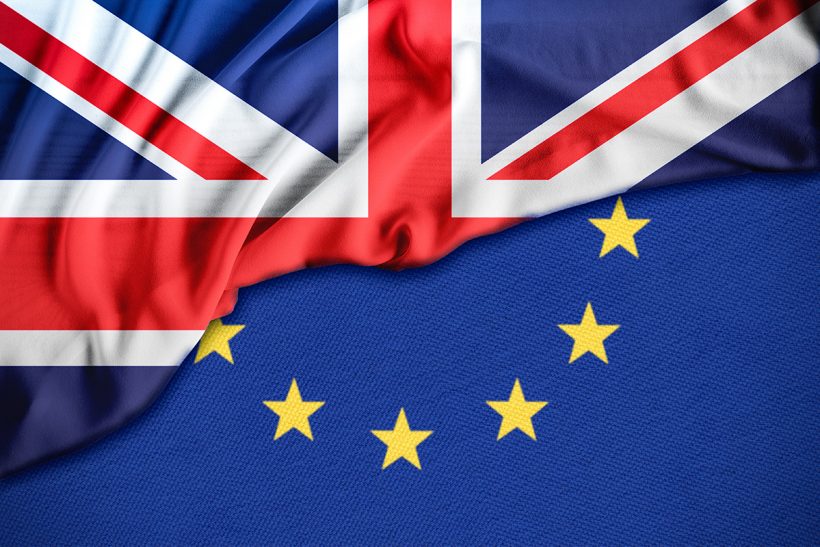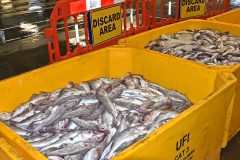Brexit threat to live mussel exports to EU – UK won’t be able to meet new standards
A mussel fishing and farming company in North Wales fears that it and other firms that export live mussels and other bivalve shellfish to the EU will be put out of business by Brexit, reports Tim Oliver
If the UK is outside of the single market when it becomes a third country, mussel exporters will have to comply with new layers of export requirements that it will not be possible to meet.
Deepdock Ltd, which farms mussels in the Menai Strait, exports about 2,000t of live mussels a year, mainly to France and Holland. It was looking at suspending all of its sales after the 29 March ‘Brexit day’, as it felt there was huge uncertainty relating to its ability to maintain its trade flows without the risk of mussels dying in transit.
Apart from worries about the effects of border delays on its live product, a week after the Brexit day deadline, on 8 April, the sector was informed by government and other relevant statutory bodies that, in fact, any live bivalve molluscs produced in anything other than Grade A waters would not be able to be exported to the EU. This would exclude the vast majority of waters around England, Wales, Northern Ireland and Scotland, which are Grade B.
Deepdock director James Wilson said that the consequences of this are that when the UK leaves the EU, we become a third country, and so are no longer considered to be immediately compliant with single-market requirements. The single-market issue – part of the suite of so-called non-tariff barriers to future trade – is likely to be the largest disruptive influence on the flow of trade from the UK into the EU.
James Wilson slammed politicians for ignoring the concerns of business in relation to the matter, and the instability and uncertainty all this has caused throughout the Brexit discussion.
“The only way you could export live bivalve mussels to the EU as a third country would be if you met end-product standard, or are producing in Grade A-standard waters,” he told Fishing News.
“We are really concerned about the impact on trade flows of live animals, because they can’t be out of the water for too long. Our initial strategy was: OK, we’re going to stop selling to market, and then wait and see what the framework is, and then see how we would proceed after that. That way, we would not be risking wagon-loads of mussels being so delayed at ports and border inspection posts that the animals expired.
“But in reality, if we get into a situation where we’re not able to take product from Grade B waters into the EU, then I think we’ve had it – it’s goodnight Vienna.
“We’re Grade B in the Menai Strait. We’re quite close to an A, so there might be a route for us there, but for other producers within the UK operating out of Grade B areas, such as Belfast, the Wash and elsewhere, who export direct to the Continent, that won’t be able to continue after the UK leaves.
“The only way that UK producers can get around this, and into the EU, is by depurating prior to dispatch, not bulk exports direct from vessels or point of landing.
“But we haven’t got the facilities to depurate, and the animals begin to lose condition when they go through depuration. This will affect the shelf life, so anything going this way is less resilient to any EU producers.”
He said they had been concerned since the referendum result, and had engaged with the UK and Welsh governments throughout this period. They had expressed concern to the Welsh government, DEFRA and the Food Standards Agency (FSA) many times, but had been told, “It will be fine.”
The administrations finally acknowledged that there was a problem more than a week after the original 29 March Brexit deadline. “We were floored by the news,” said James Wilson.
Discussions with the FSA are being organised by the Shellfish Association of Great Britain (SAGB) to see if anything can be done through the water sampling and grading system in the short term, to get the Menai waters up to Grade A standard. But even if this was achieved in the Menai, it would not necessarily help other exporters of bivalve molluscs.
The UK produces about 25,000-30,000t of mussels each year, and only about a third is used domestically – the rest is exported to the EU. Norway, which is the only other third country to export live bivalve molluscs into the EU in bulk (not depurated), is in the single market, and has many of its live bivalve mollusc production areas at Grade A standard.
It is thought that this is not a big issue for the EU, or a high negotiating priority for the UK government.
Brexit ‘confusing and deeply stressful’
James Wilson said that waiting to see if the UK leaves the EU with or without a deal has been ‘highly confusing and deeply stressful’, with ‘streams of new or conflicting advice’ emerging from government.
“The EU is far from perfect, but the alternative was always going to be a lot more trouble for us,” he said.
“Personally, I have always thought that the costs of leaving far, far outweighed the benefits. For us in shellfish cultivation, there were never going to be any, but even within the wider shellfish catching sector, not affected by quotas, I struggled to really see how things could be anything other than negative,” he said.
“Given what’s happening in the political sphere at the moment, it looks like they’re going to leave everything until the last minute. The politicians are completely detached from normal life. They live in this self-perpetuating bubble, and are simply not listening to the voices and needs of business. Across the business spectrum, they are getting a pretty uniform message that we want certainty and stability, and they are just ignoring it. It’s a disgrace.”
He does not think anything will come out of the current talks between the government and Labour, but if there is an outcome, it will be ‘sub-optimal’ for a lot of people.
“After the referendum, there was a large swathe of middle ground to be found, but it wasn’t sought by government. People took up entrenched positions, and looking for it now, at five minutes to midnight, is too late.
“The EU values the UK in lots of different ways, not only for the financial contribution that it makes, but for what we bring to the table, in terms of policy, regulation and science. I work alongside the FSA a great deal, and its contribution to the development of EU food and safety law is very highly regarded, and we’re leaving all of that and much more behind – and for what?”






